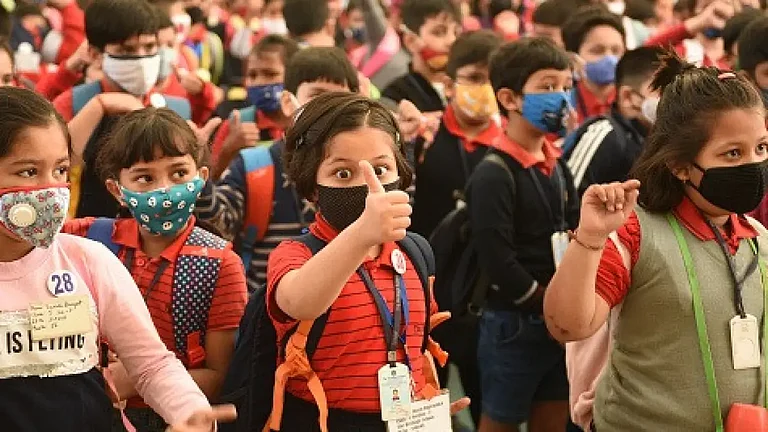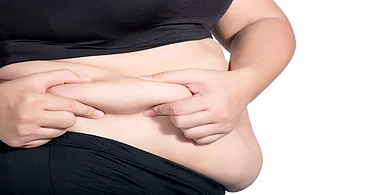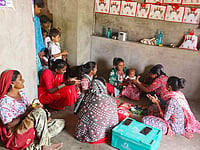With winter approaching, authorities and health experts are urging citizens to take precautions against the biting cold, which can pose serious risks to vulnerable populations.
Data speaks - Between 2019 and 2023, over 3,600 people reportedly died from exposure to cold waves across India, according to the National Crime Records Bureau (NCRB). The number could be higher, highlighting the ongoing threat posed by extreme winter conditions.
Taking cognisance of these fatalities, the National Human Rights Commission (NHRC) has urged 19 States and four Union Territories to adopt urgent preventive measures to protect the homeless, elderly, children, and other vulnerable groups from severe winter conditions.
The Commission warned that the impact of changing weather patterns, compounded by climate change, continues to pose serious health and human rights challenges, particularly for those without adequate shelter or access to healthcare.
In an advisory issued to State and UT administrations, the NHRC called for pre-emptive steps and asked them to file Action Taken Reports on the measures adopted to prevent cold-related deaths and protect vulnerable populations. It emphasised that extreme weather conditions not only threaten survival but also infringe upon the right to life and dignity.
“Changing weather patterns are increasingly becoming a human rights issue,” sad the NHRC.
The country’s top rights body reiterated the National Disaster Management Authority (NDMA) guidelines to mitigate the health impact of cold waves, including the setting up day and night shelters, treatment protocols for hypothermia and frostbite, and improved access to medical care. It also called for continuous monitoring of relief efforts and sensitisation of local authorities to ensure effective implementation.
The Commission pointed out that the recurring loss of lives during winter reflects broader systemic gaps in public health preparedness, housing, and social welfare mechanisms—issues that require coordinated attention as temperatures begin to dip across northern India.
At the state level, the Punjab Government recently issued a comprehensive winter advisory, warning the public—particularly children, the elderly, and individuals with heart or respiratory conditions—of the health risks posed by cold weather.
The advisory underscores that children are especially vulnerable to pneumonia, diarrhoea, vomiting, and other cold-related complications if improperly dressed or exposed to cold. It mandates full-body warm clothing, including caps and socks, and cautions against lighting fires in enclosed indoor spaces due to the risk of carbon-monoxide poisoning.
Hospitals are instructed to ensure availability of blankets, warmers, heaters, and hot-water dispensers, while maintaining properly insulated rooms for patients, said the advisory.
On the personal front, it said, citizens are advised to wear multiple layers to retain body heat, keep dry by changing wet clothing promptly, drink warm liquids to maintain hydration, and limit outdoor exposure during early mornings and late evenings, when temperatures and cold winds are most severe.
Health experts warn that even prolonged exposure to normal winter temperatures can affect the heart, brain, and other vital organs. “Each and every system of the body can be affected,” said Dr. Jugal Kishore, Director, Professor & Head of Department, Community Medicine Vardhman Mahavir Medical College and Safdarjung Hospital, Delhi.
When the body is exposed to cold, it can lose heat more quickly than it can generate. Gradually, the body’s energy reserves are depleted, causing a drop in core temperature. Prolonged exposure—particularly if the core temperature falls below 95°F—can result in hypothermia, frostbite, and other serious health complications, explained Dr. Kishore.
Dr. Vijay Kumar Agarwal, Director of Pulmonology and ICU at Yatharth Super Speciality Hospital, Faridabad said, people with asthma, chronic lung disease, or other respiratory conditions are particularly vulnerable during cold weather, as cold, dry air can irritate the airways. “This irritation can trigger inflammation and cause the muscles around the airways to constrict, leading to wheezing, coughing, shortness of breath, or a burning sensation in the chest—especially during physical activity," he said.
To protect yourself from the winter cold, wear layers of warm clothing and cover exposed skin with appropriate wearables. Stay indoors when it's extremely cold, keep your home insulated, stay dry, and drink plenty of warm liquids, added Dr. Kishore.



























